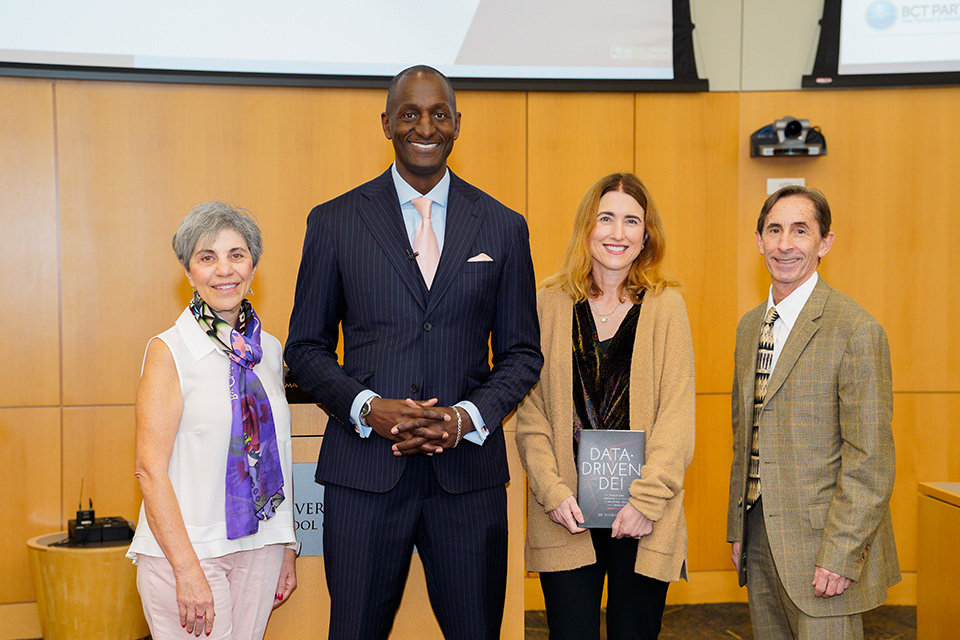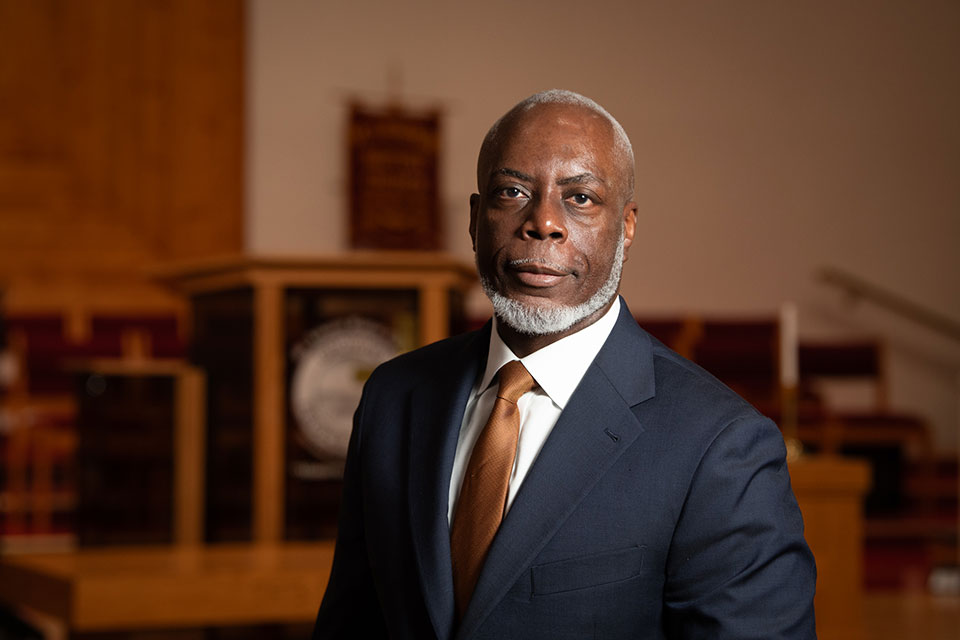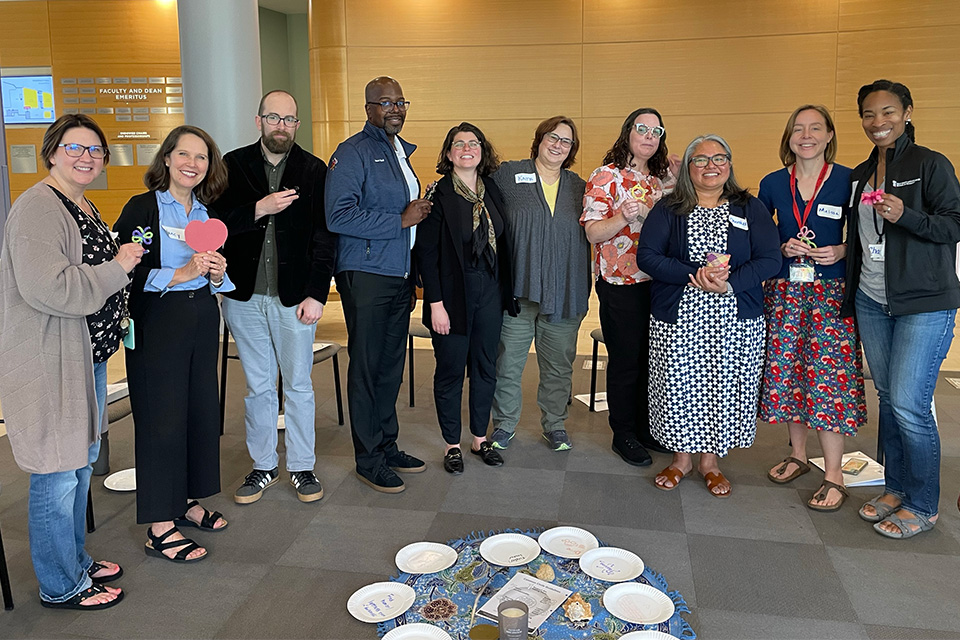Pumpian Lecture Provides Data-Driven Rationale for Health Equity and DEI Initiatives
Dr. Randal D. Pinkett is an entrepreneur, author, and diversity, equity, and inclusion expert.

By Andrew Tie
April 17, 2024
At the University of Maryland School of Pharmacy’s Paul A. Pumpian Memorial Lecture on Apr. 3, entrepreneur, author, and diversity, equity, and inclusion (DEI) expert Randal D. Pinkett, PhD, discussed how DEI initiatives and health equity can improve business results and health outcomes.
Pinkett, the co-founder, chair, and CEO of BCT Partners, has written five books, is a regular contributor to MSNBC, CNN, and Fox Business News, and was a previous winner of the reality show The Apprentice.
“If you survey employees at more diverse organizations and less diverse organizations, those at more diverse organizations report higher engagement, satisfaction, inclusion, and belonging,” Pinkett said.
Established in 2004, the Paul A. Pumpian Memorial Lecture is an endowed lecture in the Department of Practice, Sciences, and Health Outcomes Research (P-SHOR). It is supported by a gift from Paul A. Pumpian, BSP ’50, JD, a former faculty member at the School who passed away in 2008.
“We are so pleased that we were able to bring Dr. Pinkett to campus to give this year’s Pumpian Lecture,” said Eleanor Perfetto, PhD, professor of P-SHOR and co-organizer of the lecture. “I have heard glowing reviews from other faculty, staff, and graduate students who are eager to translate Dr. Pinkett’s ideas into their own work as health care providers and researchers.”
Five-Step Process
Pinkett presented a five-step cycle, plus a bonus pre-step, that provides a scientific approach and methodology for institutions to move DEI initiatives and health equity forward.
- (0) Incentives: self-reflection on a company’s DEI mission and vision
- (1) Inventory: gather baseline data for where DEI initiatives currently stand
- (2) Imperatives: set priorities, objectives, and goals
- (3) Insights: research best practices that have worked for others
- (4) Initiatives: implement strategies and measures
- (5) Impact: evaluate the results
In the context of health care, Pinkett used the example of outreach to underserved communities to drive home his points on health equity. This might include veterans, Latino/Hispanic populations, or people with various disabilities. Inclusive health care that reaches all types of people improves the business bottom line because they will “vote with their feet” and find another provider if their needs aren’t being met.
“Embracing health equity improves health outcomes and improves health care,” Pinkett said. “When you deliver culturally and linguistically competent care, it’s better care and it’s a more effective way of engaging patients.”
Pinkett and BCT Partners have collaborated on projects with The PATIENTS Program in the past, so he is familiar with the work at UMSOP. He lauded ongoing and previous work from The PATIENTS Program for advancing the causes of DEI and health equity, including several projects that he has worked on with his firm.
“Dr. Pinkett speaks so eloquently on the topics of health equity and DEI, and his ability to engage audiences on DEI topics is second to none,” said C. Daniel Mullins, PhD, professor of P-SHOR, executive director of The PATIENTS Program, and co-organizer of the lecture. “He provided an objective, data-driven, and fact-based reality for why health equity and DEI is not only good for the academic and business communities, but also is part of best practice for health care providers to advance public health.”



